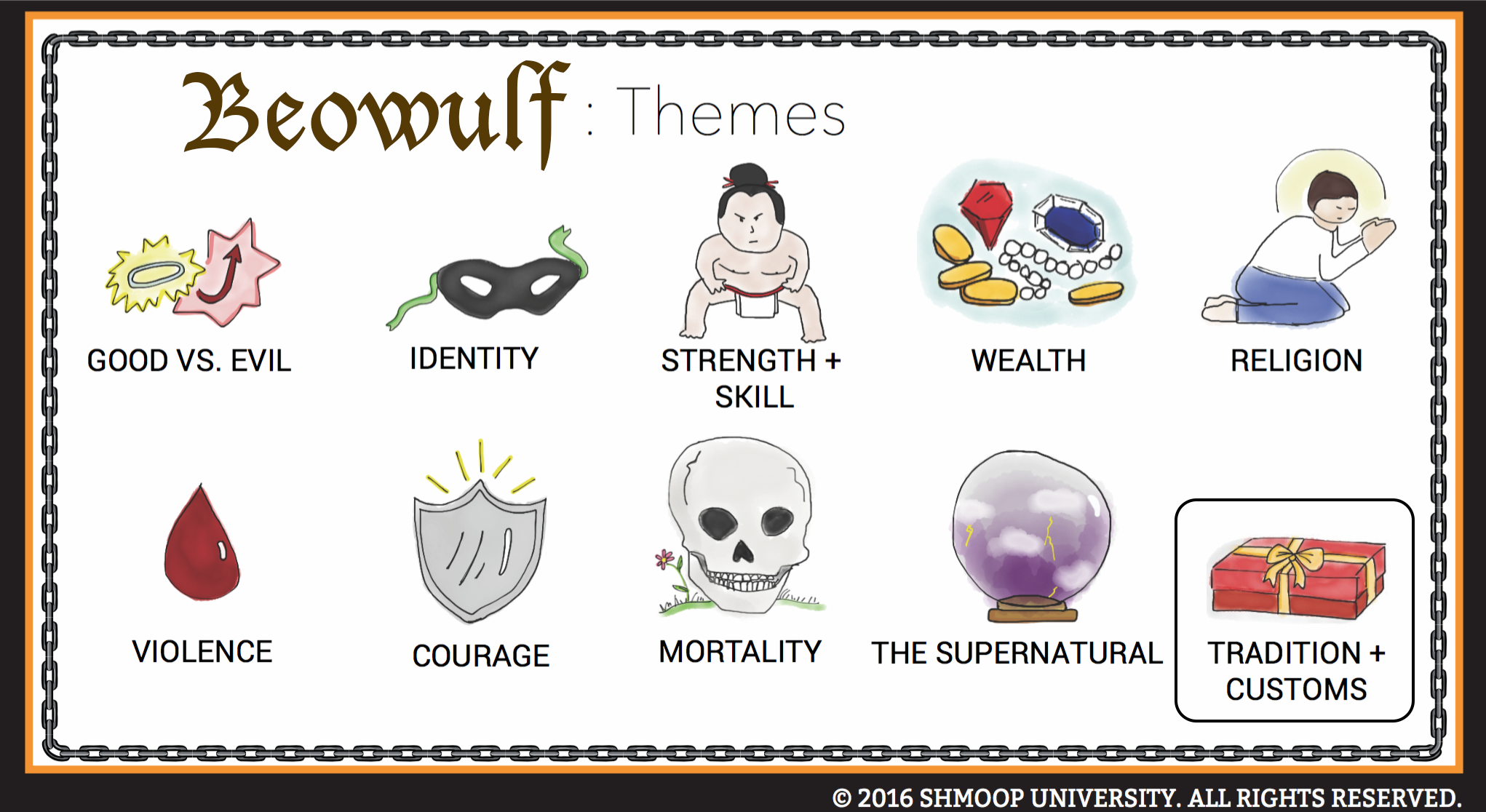 (Click the themes infographic to download.)
(Click the themes infographic to download.)
Beowulf is all about tradition and principle, but not the kind we have today in 21st century America. We're talking about the kind of principles that held together a savage tribe of warriors in medieval Scandinavia (where the story is set) or medieval England (where it was told). You know, principles like "always pay money to the family of anyone you kill to prevent a blood feud" and "reward people who help you with gifts of gold and treasure to ensure their continued loyalty." Even boasting is a principle here: warriors are judged by how well they talk up their own prowess.

Questions About Tradition and Customs
- What are the most significant differences in customs between medieval Scandinavian warrior culture and the culture that you live in?
- How do medieval warrior kings maintain their power and insure the loyalty of their lords? What must they do, and what is expected of the lords in return?
- How do the blood-feuds between different tribes, such as the Geats and the Swedes, seem to work? Are there any ways to resolve these feuds, or do they continue indefinitely?
- What is the traditional role of women in medieval warrior culture? What functions do women perform in the narrative of Beowulf? Consider especially Queen Wealhtheow and the wife of Onela the Swede.
Chew on This
One of the most important differences between medieval warrior culture and 21st century American culture is the role of boasting; while contemporary Americans claim to value humility, Scandinavian warriors valued the ability to boast and self-promote.
Although they play only minor roles in the narrative of Beowulf, so minor that often they remain unnamed, women played a significant role in medieval Scandinavian society, achieving alliances and settling blood-feuds by marrying lords of rival tribes.